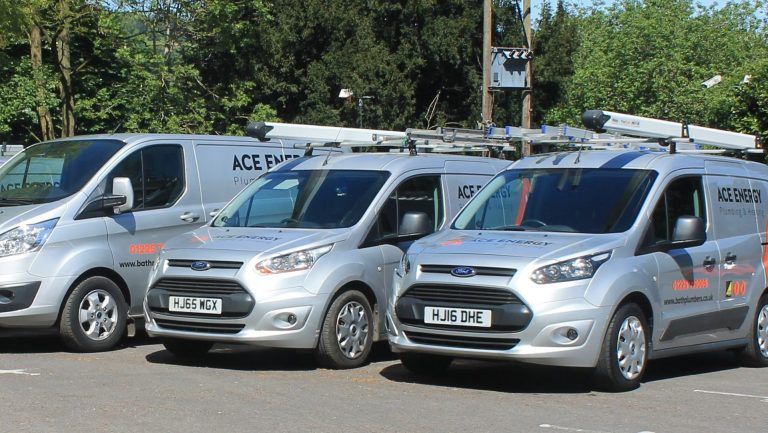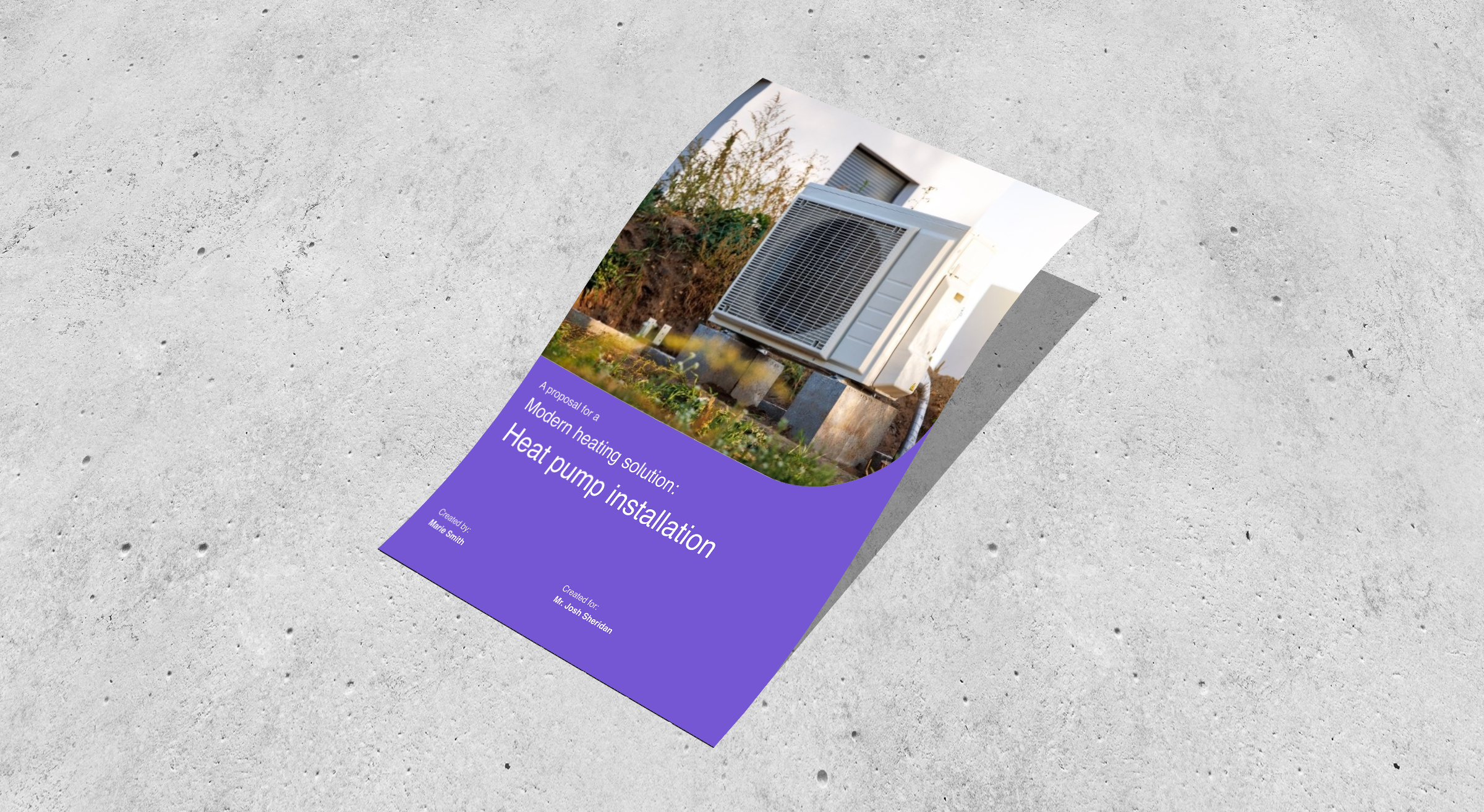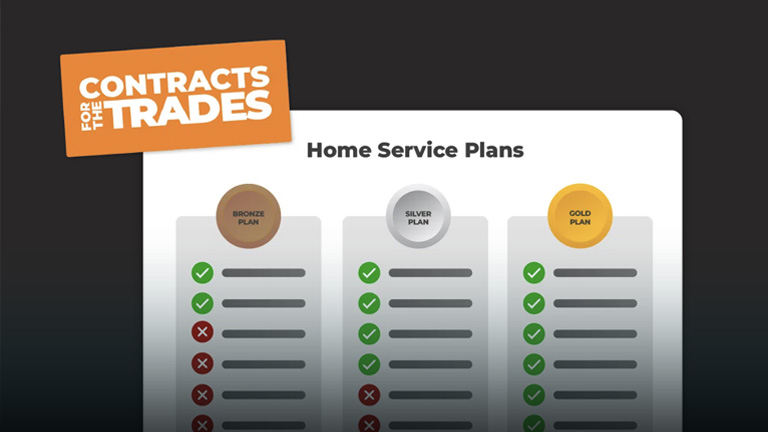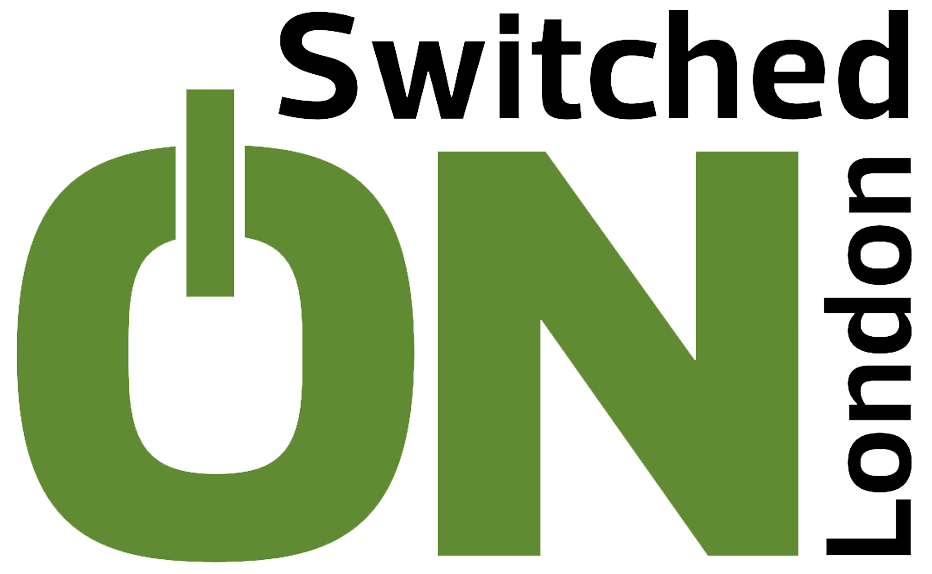Female Plumbers: Hiring in the Trades Industry
October 12, 2021 | Read: 9 minutes
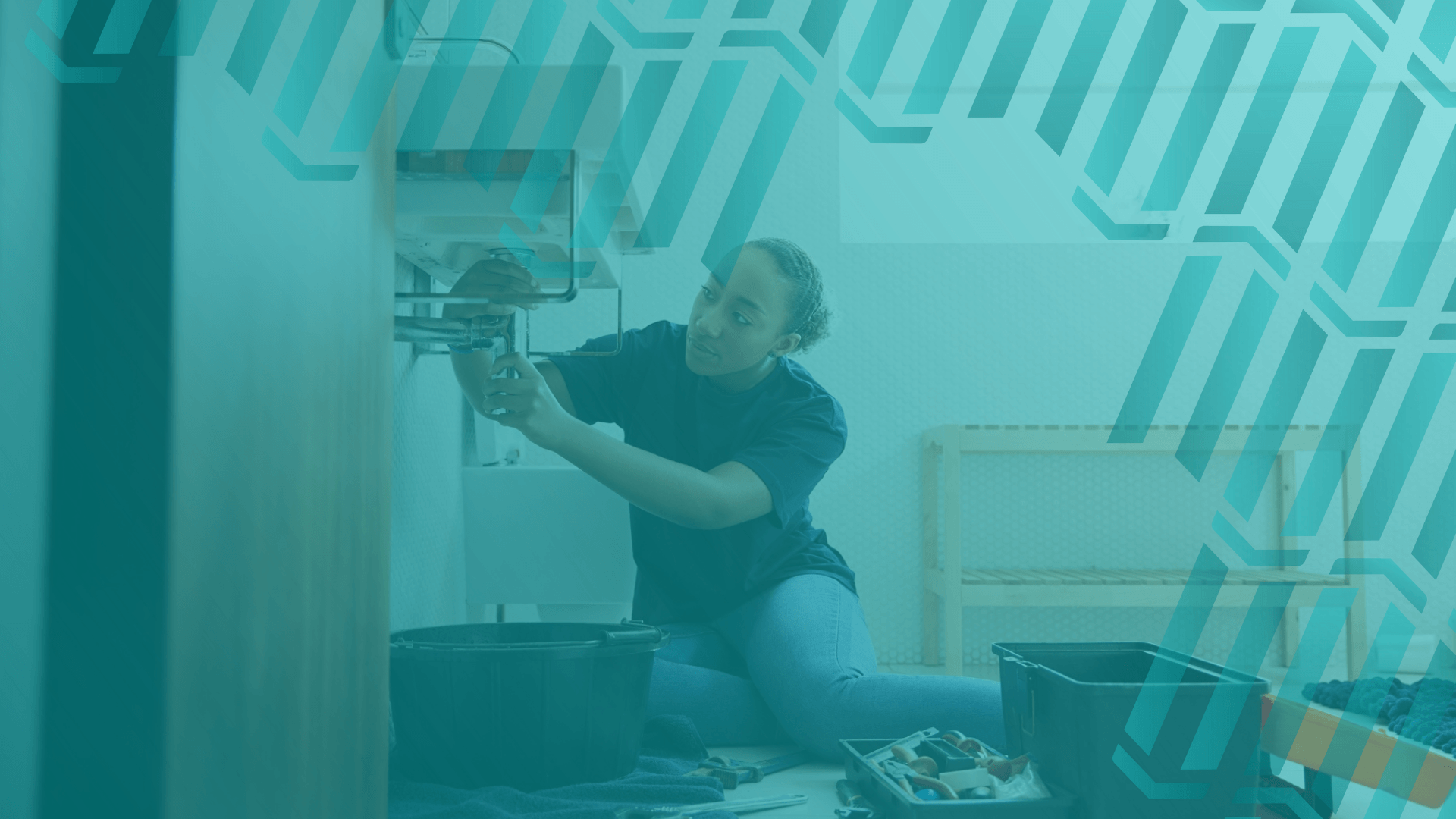
Hiring female plumbers is an effective way to grow your workforce. At a time when finding good employees is especially challenging, diversification is key.
But hiring skilled workers, regardless of gender, is a challenge for any plumbing business. Below, we’ll explore how you can help overcome the severe skills shortage that’s impacting the industry.
Hiring and retaining a female plumber should be no different than any other employee, but there are additional points to consider, and for women themselves, barriers to overcome.
We’ve spoken to fantastic tradeswomen who’re making waves in the trades industry, like Hattie Hasan, here in the UK, or Shannon Tymosko, over in Canada. Their insights are incredibly valuable and, as we’ll cover below, can impact how your plumbing business should approach hiring female plumbers and engineers.
Below, we’ll talk more about diversifying your workforce and share information about female plumbers working in the trades:

1. How many female plumbers are there in the UK?
There are approximately 12,000—15,000 female/women plumbers in the UK.
That’s just 1% of the total number of skill engineers, which sits somewhere between 120,000—150,000.
If you put all the skilled tradespeople together, the numbers don’t seem to go much higher than 33,000 women. Even then, that’s after what Construction Magazine has called a “steep rise in interest in the trades from women”.
To really put things into perspective, the UK has a working population of over 32 million. Not only is there a shortage of plumbers in general, but the number of female plumbers is even smaller in the grand scheme of things.
Clearly, there’s still a long way to go to have a more balanced industry.
All in all, a skilled trade like plumbing offers a career path that many are right to consider. There’s high wages, no student loans, flexible work/life balance, and it’s an active role. And yet very few women are training to become plumbers or skill technicians.
This begs the question, then:
2. Why aren’t more women working as plumbers?
If this is such a great career path, why aren’t more women applying to become plumbers, electricians, and other skilled tradespeople?
Part of the answer to these questions is the same as the one given when asking “Why aren’t more people in general choosing apprenticeships?”.
Some of it has to do with preconceived notions about blue-collar jobs.
The myths, which we’ve listed below, usually go double for women interested in trades, who could be deterred by the following:
- Myth: “There is little job security in the skilled trades”.
A simple Google search will prove otherwise.
There has been a demonstrable shortage of plumbers and other tradespeople for years.
It’s not for nothing that you’ll hear how “there’s no such thing as an unemployed plumber”.
- Myth: “There are few ways to build a long-term career”.
Advancing as a plumber is a pretty straightforward path. You earn your qualifications by demonstrating your technical expertise.
You can do this on the job whilst also gaining expertise by simply working to gain more years of experience.
Compared to white-collar jobs, where career advancements are often based on corporate politics and personal decisions, women actually stand a better chance of playing on an even field in the skilled trades.
- Myth: “Plumbing is too physically demanding for a woman”.
A trade job is a physically demanding role. All plumbers have to manage their health a good level of physical fitness will be required.
We all come in different shapes and sizes, so it’s important not to shoe-horn stereotypes on men or women. Instead, the practicalities of the role sohuld be considered i.e. such as a need for sometimes fitting into tight/awkward spaces, or working on your hands and knees.
There are physical demands which can take a toll, no matter who’s doing the job.
- Myth: “Plumbing is too technical for a woman”.
This is a culturally ingrained perspective that has plagued the trades, as well as STEM fields, and other technical career paths.
It goes without saying that biology has nothing to do with being good at maths, but if that’s your concern, rest assured: being a plumber requires only basic knowledge, which you can find here.
To take an example from Canada, our team had a chat with Shannon Tymosko (aka Lady Voltz) an electrician who also advocates for women in trades.
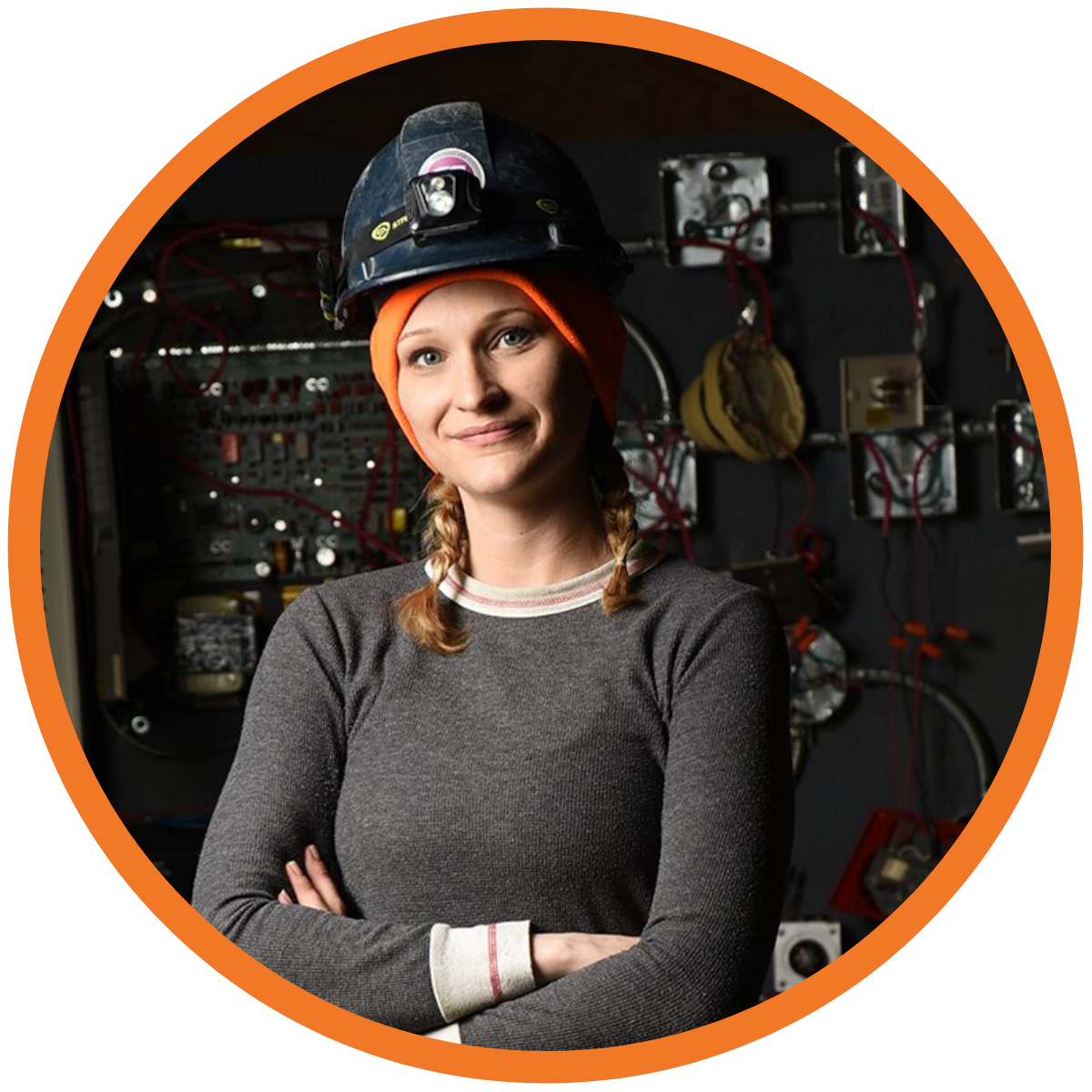
In our conversation, Shannon discussed how, given the opportunity, women can easily thrive in the plumbing profession. She’s eager to help reshape the industry into a more compassionate place, enriched by a more diverse, professional workforce.
“Culturally, women can give so much to a workforce […] they tend to be more nurturing and can change the energy.”
That diversity is something to be embraced and welcomed!
➡️ Watch the full interview: “Let’s Talk: Hiring & Retaining Women“!
- “Plumbing is a dirty job”.
Plumbing can be messy, but it’s no reason to shy away from the job.
This is a fact of the plumbing job options and it’s up to each individual to decide whether they’re too squeamish to be a plumber. However, keep in mind no one typically calls jobs like housekeeping or nursing “dirty” jobs, despite the fact they can be plenty messy.
These are only a few of the obstacles women find themselves facing and a responsible business owner should take them into account when trying to hire any plumber, as well as female plumbers, too.
However, you might be tempted to wonder if it’s even worth the effort and find yourself asking…
3. How can diversifying the workforce help my business?
They might not admit it, but it’s often the case that hiring managers and owners of plumbing businesses worry that hiring women might cause disruptions, especially in a male-dominated workplace.
Changing the dynamic of any team is going to be a challenge, but considering the positives that can come out of it should definitely motivate you to diversify your workforce.
For instance, a study by the Center for Creative Leadership (CCL) found that having a higher percentage of women in the workplace leads to:
- Increased job satisfaction
- A more motivated workforce
- Employees find meaning in their work
- Lower chances of burnout
It’s pretty clear that organisations benefit from hiring more women, but, according to WaterSafe, your customers will appreciate it, too.
Almost a third of women (31%) would prefer a female plumber to carry work on their home and 59% of consumers would feel positive about more women taking up a trade.
“Reasons cited include feeling safer with a woman (37%), feeling like they wouldn’t be ripped off by a female (12%), trusting advice from a woman more than a man (10%) and the likelihood that a woman wouldn’t patronise them (10%).”
Hattie Hasan, a plumber herself and trades activist—not to mention the founder of the Register for Tradeswomen (and proud Commusoft user, too!)—has some incredible experiences to share.

She found it especially gratifying to carry work for victims of domestic abuse, offering support from qualified professionals who can assist with trade work for people who have or are experiencing precarious domestic situations.
In these cases, having a male worker in the house might cause customers great anxiety, or even place them in danger.
Being the kind of company that is able to deal with these customers compassionately isn’t just a sound business deal, it’s simply the right thing to do.
➡️ Watch: Women in Trades with Hattie!
All in all, these are difficult benefits to measure but they provide mostly long-term gains. If simply hiring a few female plumbers can get you even that little bit closer to one of them, then it’s definitely worth making the investment.
4. Where do I find qualified female plumbers?
If you’re determined to hire more female plumbers, knowing how and where to advertise is key.
As mentioned, there’s a shortage of skilled tradespeople and women only make up a small percentage of this already small number, so it’s worth being proactive with your plumbing business’ marketing.
The best way to help the industry, in general, is to work with apprenticeships programs and contact your local Further Education College.
Also, consider sponsoring the various organisations that actively strive to get more girls and women into the trades, such as WaterSafe’s Get Girls Plumbing campaign, or the Registry for Tradeswomen. They have free courses for victims of domestic abuse.
You can also try to hire female plumbers by:
- Advertising on forums and job boards dedicated to promoting trades amongst women
- Keeping your job descriptions gender-neutral by avoiding terms like a tradesman, heavy-duty engineer, and other masculine-sounding phrases
- Giving women a chance to apply and interview for a job.
5. Information to keep in mind:
The conversation around hiring tradeswomen is generally focused on the positive aspects and benefits. Whilst it’s great, it’s important to keep some other points in mind.
In fact, it might actually put women off if you don’t take some practical points into consideration as you move to diversify your workforce. For instance, you’ll need to consider:
- Acquiring uniforms in appropriate sizes and fits
- Ensuring important safety equipment fits your staff
- Providing appropriate changing and bathroom facilities, as needed
Don’t be afraid to dig a bit deeper, too. If you’re approached by women wanting to work in the plumbing industry, ask them what you can do to help.
Collaborating with your team to build a better environment will be a massive help to your recruitment efforts.
How to Improve your Workforce
As plumbing companies find themselves with more work on their plate and fewer qualified people to do it, it’s important to be proactive. This means making an effort to promote roles to a wide variety of tradespeople.
The fact of the matter is that getting more women into plumbing is a great, untapped resource. Of course, realistically, women encounter more challenges than the average man when trying to make their way into the industry but you can help to change the industry and make it more inclusive, today!
To help you better equip your business with the tools to support your team, we’d encourage you to explore Commusoft. Our Plumbing Software can help transform your business, boost productivity, transform customer journeys, and help everyone to work more efficiently:

Cristina Maria
I'm here to bring you next-level strategies to the field service industry. When I'm not working on the best tips to grow your business, I'm on the lookout for sci-fi novels and cookie recipes.
